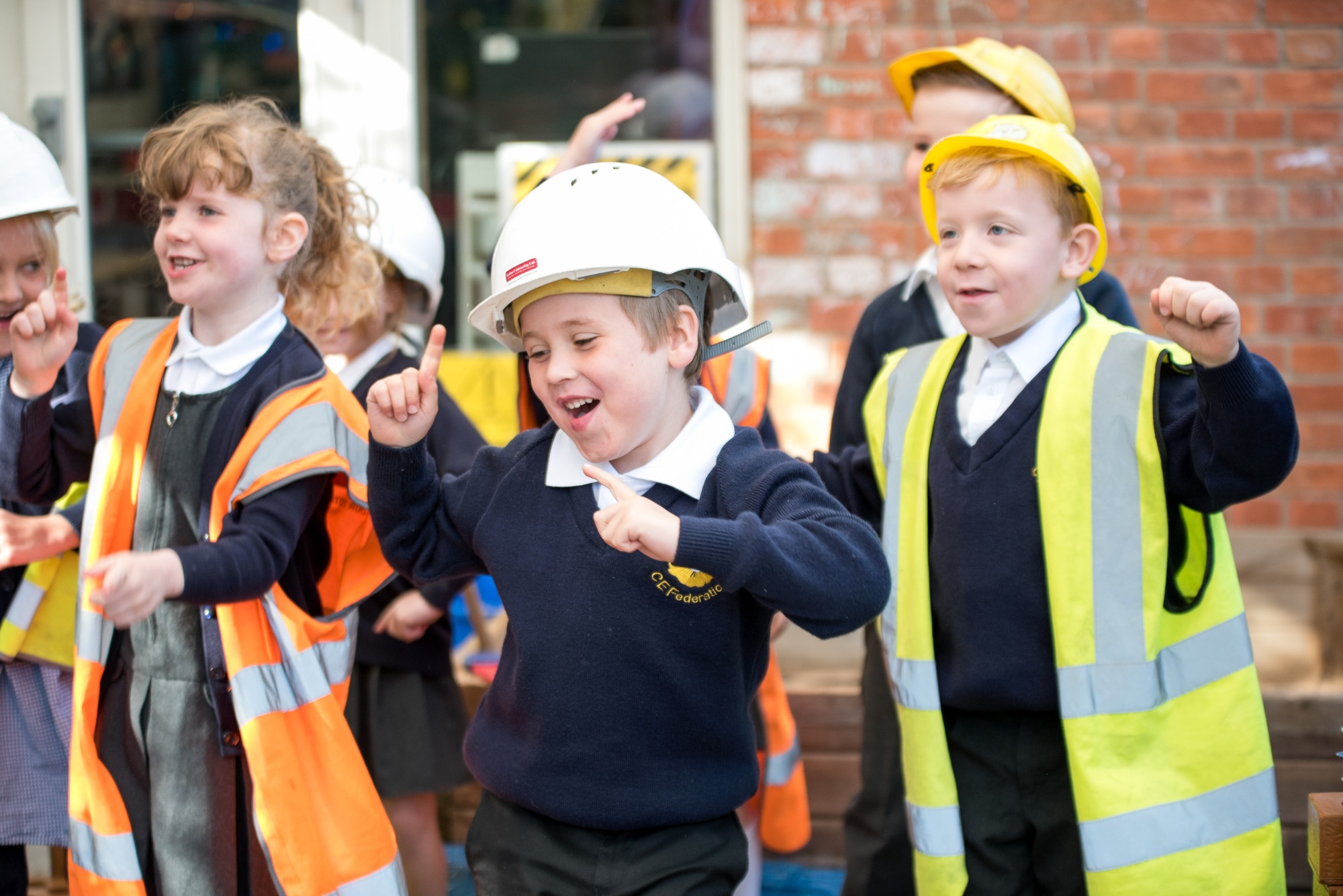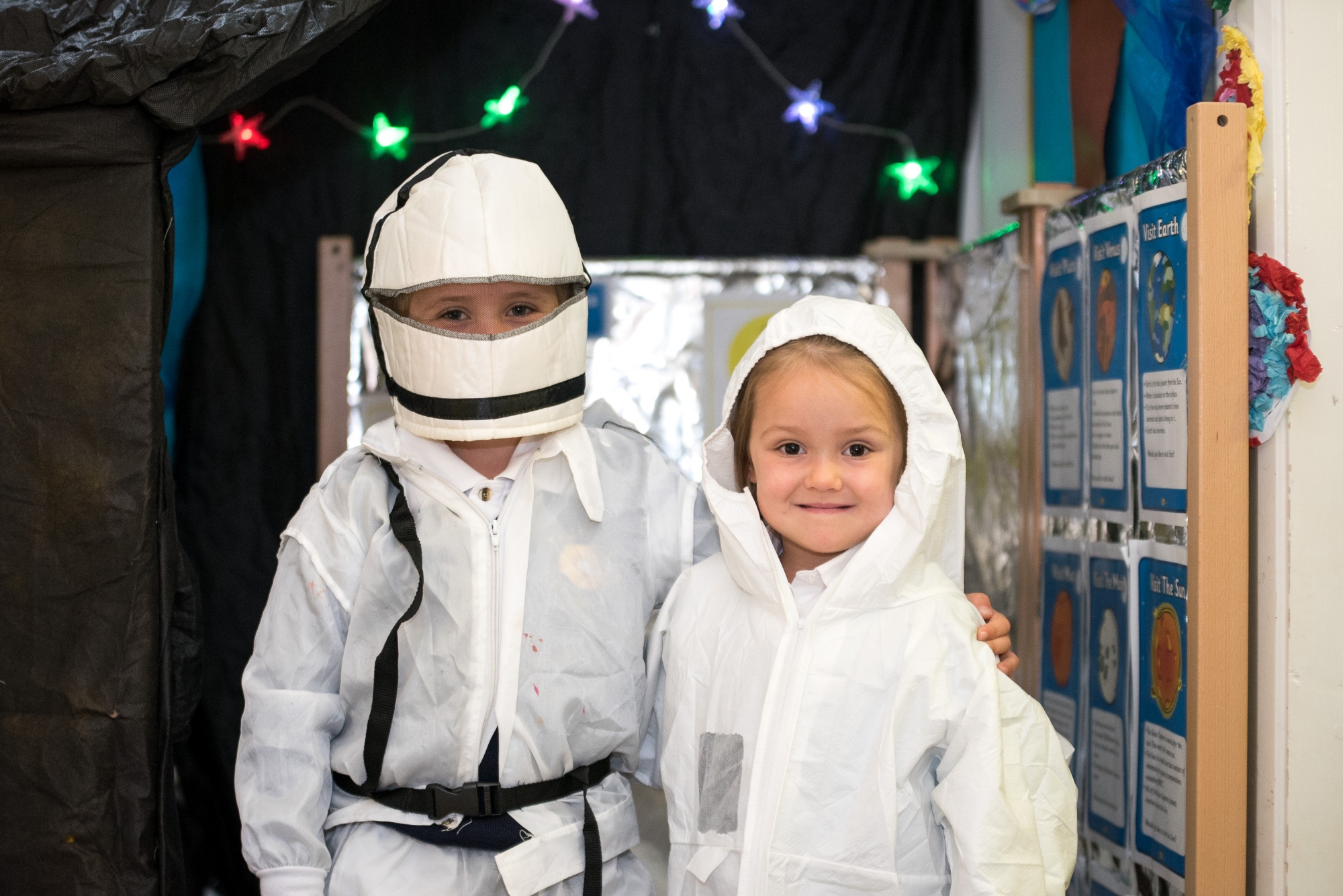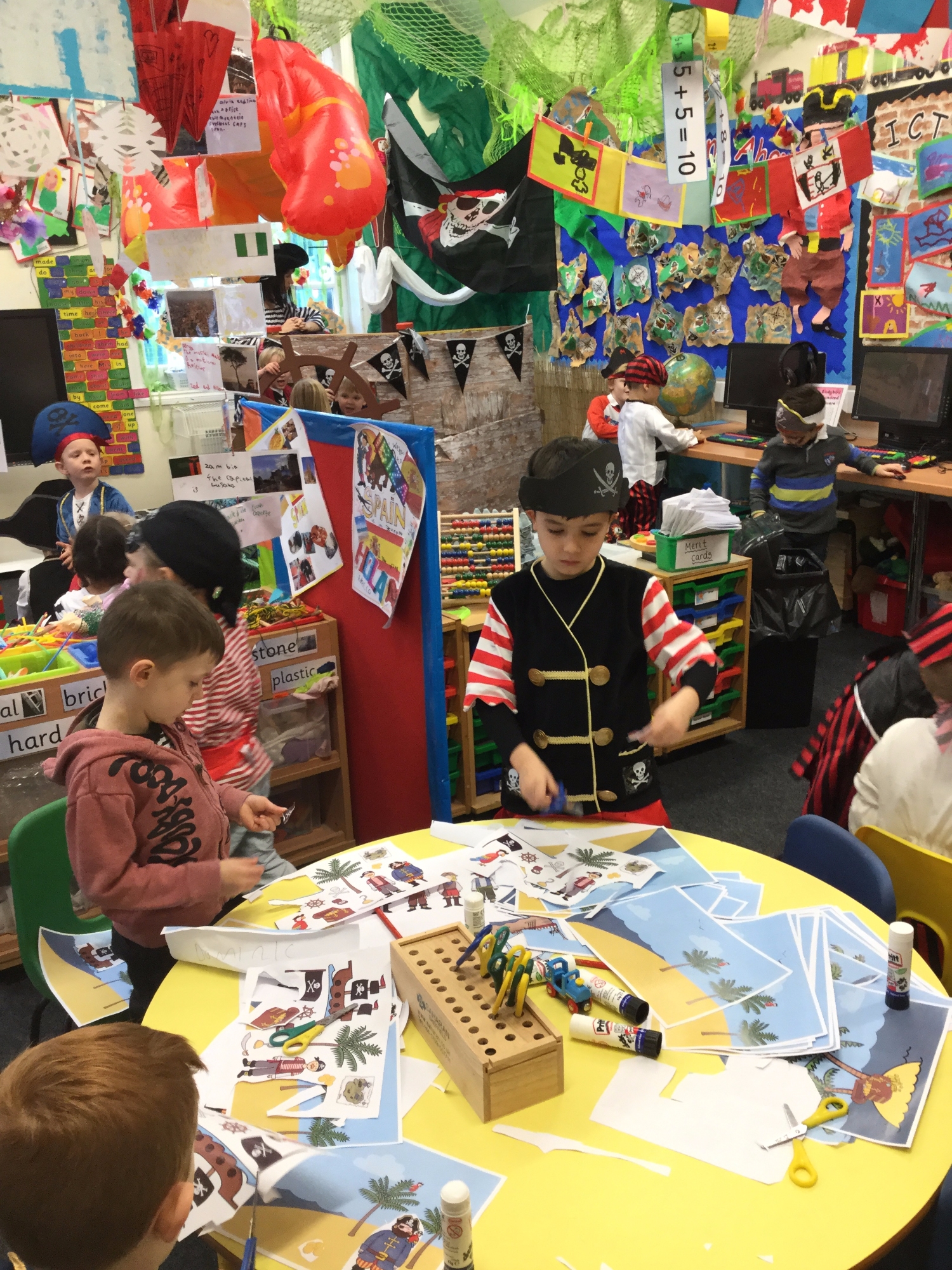EYFS
The Early Years Foundation Stage (EYFS) Curriculum is the statutory framework that sets out children’s learning and development in the Foundation Stage. It gives children a broad range of knowledge and skills that provide the right foundation for good future progress through school and life.
Your child will be learning skills, acquiring new knowledge and demonstrating their understanding through seven areas of learning and development.
Prime Areas
Children should mostly develop the three prime areas first. These are:
Communication and language: listening, attention, understanding and speaking.
Physical development: moving, handling, health and self-care.
Personal, social and emotional development: self confidence, self-awareness, managing feelings, behaviour and making relationships.


These prime areas are those most essential for your child’s healthy development and future learning.
Specific Areas
As children grow, the prime areas will help them to develop skills in four specific areas. These are:
Literacy: reading and writing.
Mathematics: numbers, shape, space and measures
Understanding the world: people, communities, technology and the world.
Expressive arts and design: exploring using media, materials and being imaginative.

At the end of the EYFS – in the summer term of the reception year in school – teachers complete an assessment which is known as the EYFS Profile. This assessment is carried out by the reception teacher and is based on what they, and other staff caring for your child, have observed over a period of time.
We consider ourselves partners in your child’s learning. The activities that you do with your child at home are important in supporting their learning and development, and have a really long lasting effect on your child’s learning as they progress through school. For example, talking, listening, reading, singing nursery rhymes, cooking and baking or playing outside with them.
You can find out more about the Early Years Foundation Stage which includes the early learning goals at http://www.foundationyears.org.uk The Foundation Year’s website also includes a range of resources and contacts.
Our Learning Environments
Our classrooms are fun and exciting places to learn. We aim to pique children's curiosity to enable them to enjoy and be excited about their learning journey.
